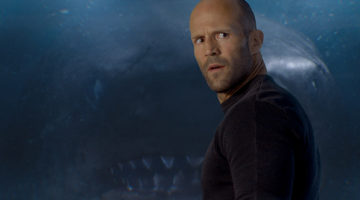Cannes 2012 Review: The Hunt (Jagten)
The pride of the silver screen in Denmark, and a prolific star in his own right, better known in North America for playing a James Bond villain in Casino Royale and a warrior in Clash of the Titans, Mads Mikkelsen earned his right to stand in the spotlight in Cannes with the premiere of his new film, The Hunt.
Mikkelsen as well as director Thomas Vinterberg and several other cast members were in attendance for the gala, proudly offering their Danish film up for competition in the festival. The Hunt brings to life the troubling tale of Lucas, a middle aged man, recently divorced, with son Marcus, who works at a local Kindergarten when not walking with his dog Fanny. While struggling to gain more time with Marcus from his mother, and awkwardly stumbling into love, Lucas finds livelihood among the children, chasing and teasing and wrestling, and of course tending to their youthful anxieties and rites of passage.
Petite and precocious Klara (a remarkable Annike Wedderkopp), is one of the children clearly charmed by Lucas, long-time best friend of her father Theo. Living in a small Danish community in a big, empty house, Lucas slowly and contently resurrects his life. That is, until, an innocent comment is made by one of the children, and a silly aside turns into rumour that turns into conjecture, that turns into fact.
When first uttered to a confiding teacher, it seems absurd that she in an administrative position would so quickly side with the child over the adult, but it doesn’t matter. It doesn’t matter when and how she acts, it only matters that she does. Because regardless of the mode and means, once an accusation spreads from one to two, it spreads like wildfire.
What develops is an incredibly tense journey about a man at the centre of a lie taken instantly as truth, one that is seemingly never to be undone. Mikkelsen is compelling, commanding the screen as Lucas tries to process the ridiculous, cope with the consequences, while simultaneously trying to stir to some sort of worthwhile action.
Lucas is forced into confrontations with his best friend, his new girlfriend, community parents, and even his son, as he seeks trust and absolution. But while the latter can be ordained by the law, a reputation and a community’s sensibility are much harder boards to bore. He transforms, from an endearing everyman, possessive of a childlike sense of self and romance, goofing with kids, to a man expelled from every constant in his life—family, friends, work, and his lover–and to the brink of sanity.
The final few scenes (really the entire second half) are froth full of such debilitating unease and apprehension that you cannot help but be pulled into both the despair and madness that drives Lucas. Vinterberg barely hints at what is coming, and if you are keen enough to manage recognition, you’ve only seconds to prepare for the several surprises and shocks.
Mikkelsen triumphs in a movie that transcends all languages and cultures, as desperation and delirium are universally understood.
[star v=4]






